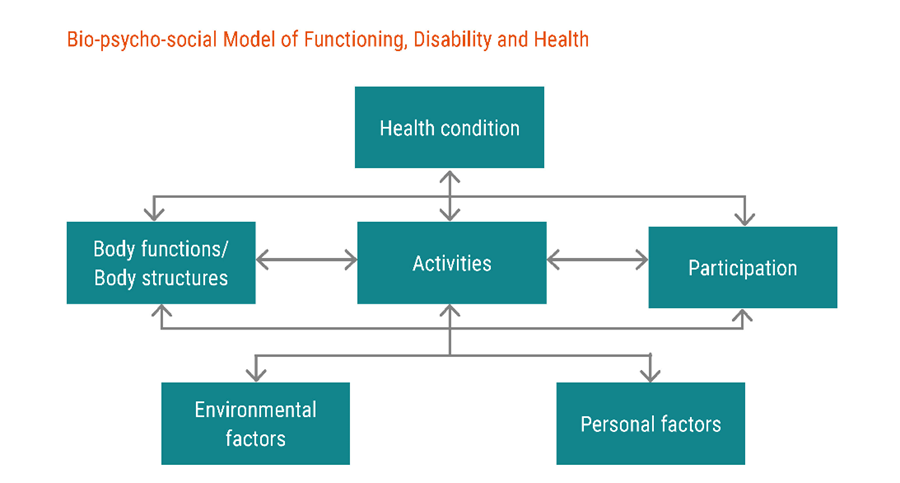Practice prompt
Knowing a child or parent’s diagnosis is important, and understanding the way their disability impacts their functioning is critical to ensure appropriate supports are implemented to improve child and parent wellbeing and family functioning.
International Classification of Functioning Framework
The International Classification of Functioning (ICF) Framework developed by the World Health Organisation is a widely used model to understand disability:

In this model we consider:
- Body functions and structures, which also includes psychological factors (impairment level)
- Activities that the person participates in, and their ability or limitations on their ability to participate in everyday activities and society.
- The environment (physical, social and attitudinal environments) which affects these experiences, including strengths or barriers in the environment.
- Personal factors such as the person’s lifestyle, gender, age and so on that are not part of the primary health condition.
(World health Organisation, 2001; Swiss Paraplegic Research, 2018).
The framework conceptualises disability as multi-dimensional and interactive in that the person’s level of functioning is a combination of their health conditions, environmental factors and personal factors.
Tip
Use this framework as a foundation to gather information about a child or parent’s disability to understand its impact. Talk to the person themselves, as well as their NDIS provider, health professionals, relatives, safety and support network, school staff and other significant people.
Published on:
Last reviewed:
-
Date:
Maintenance
-
Date:
Page created

